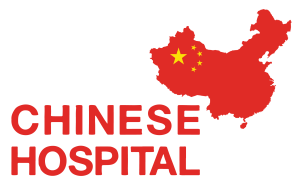Published: June 23, 2025
Reviewed by cancerfax Experts | Source: Tsinghua University Press
Journal Reference: Yu, T., et al. Cancer Biology & Medicine (2025). DOI: 10.20892/j.issn.2095-3941.2024.0538

CAR-T Cell Therapy: A Game-Changer in Lymphoma Treatment
Chimeric Antigen Receptor T (CAR-T) cell therapy has dramatically reshaped the treatment landscape for relapsed or refractory lymphoma. By engineering T cells to express synthetic receptors that specifically recognize tumor antigens, CAR-T cells can directly induce apoptosis in cancer cells via perforin/granzyme release and Fas-FasL interactions, while also secreting cytokines to modulate the tumor microenvironment (TME).
Clinical Insight: “In patients with chemo-refractory diffuse large B-cell lymphoma (DLBCL), CAR-T has offered complete responses where no other options were viable. However, precise antigen matching and immune status assessment are critical to achieve durable efficacy.”
Current Limitations and Barriers
Despite its success, CAR-T therapy still faces several clinical and biological challenges:
Tumor antigen heterogeneity and immune escape
Immunosuppressive tumor microenvironment (TME)
T cell exhaustion and short-lived persistence
Severe adverse effects, including cytokine release syndrome (CRS) and neurotoxicity
Expert Note: “Cytokine storms and neurological complications are real threats. Early detection and management using IL-6 blockers like tocilizumab, or even corticosteroids, are often necessary in the clinical setting.”
Innovations in Next-Generation CAR-T Cell Engineering
In their 2025 review, researchers from the Second Affiliated Hospital of Zhejiang University highlighted how novel CAR-T designs aim to overcome the current limitations and enhance treatment outcomes:
Multi-Target CAR-T Cells
Designed to combat antigen loss and tumor heterogeneity, these constructs allow simultaneous recognition of multiple tumor-associated antigens.
Clinical Relevance: “For fast-mutating lymphomas, such as transformed follicular lymphoma, multi-targeting improves initial response and reduces relapse risk.”
TRUCKs (T Cells Redirected for Universal Cytokine-Mediated Killing)
Engineered to release cytokines upon antigen recognition, TRUCKs enhance local cytotoxicity and activate host immune cells, improving tumor infiltration.
Checkpoint-Switching CARs
These modified receptors convert inhibitory signals (e.g., PD-1, CTLA-4) into stimulatory responses, overcoming TME-induced immunosuppression and T cell exhaustion.
Universal CAR-T Platforms
Innovations like iPSC-derived, allogeneic, or in vivo-generated CAR-T aim to provide “off-the-shelf” options, reducing costs and production delays.
The Emerging Role of Metabolism and Epigenetics
Recent research emphasizes the influence of cellular metabolism and epigenetic programming on CAR-T efficacy:
Glycolysis and Oxidative Phosphorylation: Modulate energy production and cytotoxic efficiency
Histone Acetylation and DNA Methylation: Govern memory formation, exhaustion, and gene expression
Epigenetic Modifiers: Emerging strategies involve HDAC inhibitors to restore CAR-T functionality
Specialist Insight: “Metabolically reprogrammed CAR-T cells — particularly those with optimized OXPHOS balance — exhibit longer persistence and superior tumor control in vivo.”
Clinical Outlook: Power, Safety, and Precision
The ideal CAR-T cell of the future will be:
Highly specific in tumor recognition
Cytotoxic and persistent
Resistant to TME and exhaustion
Safe with minimal off-target effects
Scalable and affordable for global access
However, the complexity of engineering such advanced CAR-Ts introduces higher genetic risks, production challenges, and regulatory hurdles.
Final Clinical Perspective:
“As oncologists, we strive to balance efficacy with safety. The next era of CAR-T therapy must not only kill cancer effectively but do so with minimal toxicity and maximum accessibility. Combining CAR-T with checkpoint inhibitors, metabolic rewiring, or epigenetic modulation may become the new therapeutic standard.”
Funding & Research Support
This research was made possible through the following grants:
Science Technology Department of Zhejiang Province (Grant No. 2021C03117)
Noncommunicable Chronic Diseases Major Project (Grant No. 2023ZD0501300)
National Natural Science Foundation of China (Grant No. 82170219)
Zhejiang Provincial Natural Science Foundation (Grant No. LQ24H080009)
Conclusion: Toward a New Immunotherapy Paradigm
As genetic engineering, synthetic biology, and systems immunology continue to evolve, next-generation CAR-T cell therapy will redefine what is possible in lymphoma treatment. These engineered immune cells represent more than a therapeutic innovation—they are a new frontier in personalized cancer care.




